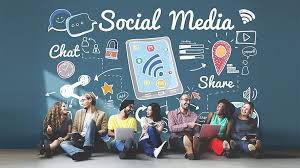**The Influential Role of Social Media in the Modern World**
#Communication and Connectivity#
In the 21st century, social media has emerged as one of the most influential platforms that have shaped the way we communicate, interact, and view the world. What started as a means to keep in touch with friends and family has become a powerful tool that affects almost every aspect of modern life, including politics, education, business, culture, and mental health. With billions of active users worldwide, platforms like Facebook, Instagram, Twitter (now X), TikTok, and LinkedIn have turned into digital ecosystems where news breaks, trends start, and communities are formed. The role of social media in today’s world is not only crucial – it’s also transformative.At its core, social media is a tool for connection. It has revolutionized communication by making it instant, global, and interactive. People from different parts of the world can communicate in real time, share their stories, and exchange ideas. This connectivity has helped bridge cultural gaps and foster cross-cultural understanding. Families separated by distance can easily keep in touch, friends can instantly share life updates, and individuals can find others with similar interests, no matter how niche they may be.
#Social Movements and Political Awareness#
Perhaps one of the most influential roles played by social media today is in the area of social justice and political engagement. Platforms have become arenas for raising awareness of global issues, staging protests, and holding governments accountable. Movements such as #BlackLivesMatter, #MeToo, and climate activism have gained a lot of momentum through social media, garnering international attention and inspiring real-world change.During political campaigns, social media serves as the primary battleground for narratives and influence. Politicians and governments use the platforms to reach voters directly, bypassing traditional media. However, it also opens the door to misinformation and manipulation, as seen in instances of election interference and the spread of conspiracy theories. The democratization of information can be both empowering and dangerous.From small startups to multinational corporations, businesses rely heavily on social media to connect with customers, promote products and build brand identity. Influencer marketing – a relatively new but rapidly growing field – reflects the economic power of social media. Individuals with large numbers of followers can shape consumer behavior and push trends, often more effectively than traditional advertising.In addition, social media has leveled the playing field for entrepreneurs. Anyone with a phone and a good idea can start a business, reach a global audience and generate income. Platforms like Instagram and TikTok have also become launchpads for new careers in content creation, turning ordinary users into overnight celebrities and entrepreneurs.
Social media has made education more accessible. Educators, institutions, and thought leaders use these platforms to share information, resources, and learning opportunities. During the COVID-19 pandemic, when in-person learning was restricted, social media helped maintain educational engagement and community.Beyond formal education, social media spreads awareness on a wide range of topics, from mental health and sustainability to science and current events. It allows experts to reach a wider audience, helps people stay informed, and empowers users to become lifelong learners.While social media can be a source of support and self-expression, it also has complex effects on mental health. The positive side is that many users find community, validation, and inspiration online. People can share their stories, find others with similar experiences, and receive emotional support.The downside is that constant comparisons, curated lifestyles, and pressure to perform can lead to anxiety, depression, and low self-esteem, especially in teens and young adults. Cyberbullying and online harassment remain significant issues, and the addictive nature of scrolling can contribute to decreased productivity and disconnection from real life. The mental health impact of social media is one of the most widely debated and studied consequences of its rise.It promotes music, fashion, memes, and other trends. Artists and creatives can showcase their work to the world without the need for traditional gatekeepers like publishers or studios. Viral videos, TikTok dances, and internet challenges often become part of mainstream culture, demonstrating that new things are good and new.
Click here more site>>>>>>>>>Enjoy in gurugram

.jpg)


Comments
Post a Comment